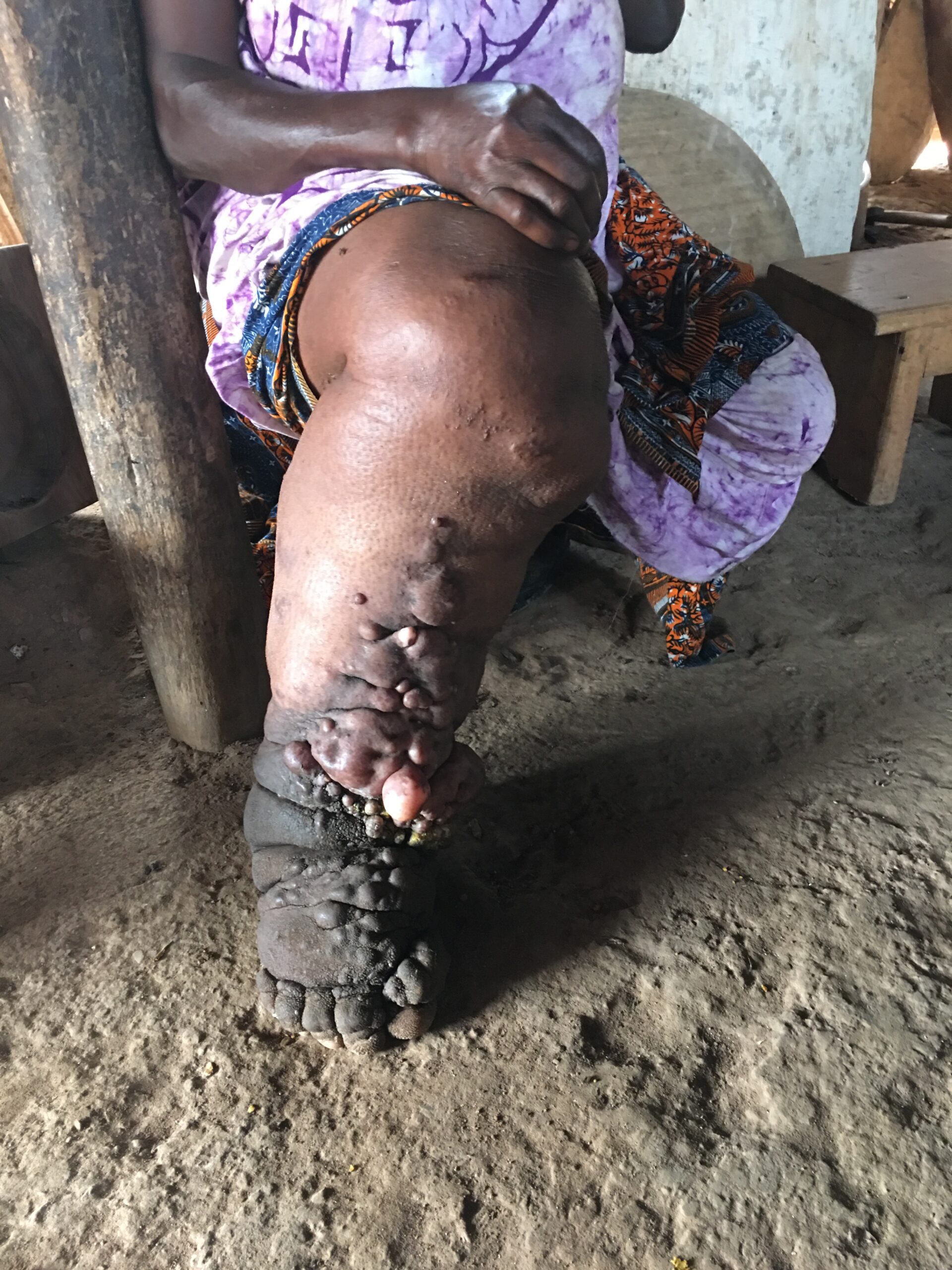Health Through Knowledge: Addressing Global Needs in Lymphedema
2016 World Lymphedema Day is March 6.
During the January 2016 filming of the USAID MMDP Project hydrocele and lymphedema management training videos in Dixcove, Ghana, Dr. Danny Haddad, MMDP Project Technical Director, and Dr. Sunny Mante, MMDP Project Surgical Coordinator, met “Mrs. A.A.” in her village. Below is her story.
“I can’t go to the beach anymore to buy fish,” laments Mrs. A.A., a 59-year-old woman who makes smoked fish to sell on the coast of Southern Ghana.
What has robbed this woman of her livelihood? She has elephantiasis, a severe form of lymphedema caused by the mosquito-borne disease lymphatic filariasis. The disease creates an imbalance in the lymphatic system, leading to swelling of the limbs, scrotum and breasts. An estimated 40 million people worldwide are suffering from progressed disease due to lymphatic filariasis, bringing disability, social stigma and reduced economic productivity to their lives and their futures.

Mrs. A.A. explains that she has suffered from lymphatic filariasis since she was a young woman, recalling that the swelling began worsening 16 years ago. Like others with lymphedema, she experiences acute attacks that incapacitate her for weeks with fever, headache and a painful, burning sensation in her leg. And with each attack, the skin on her leg grows harder and thicker.
Once someone begins to show signs of progressed disease due to lymphatic filariasis, very little can be done to stop or reduce the swelling. But with proper care, people like Mrs. A.A. can avoid acute attacks and learn how to keep their affected limb dry, clean and free of infections. At the hospital, Mrs. A.A. learns to wash and carefully dry her swollen leg every day, to elevate and exercise it, and to apply antibiotic ointment to lesions.
The USAID Morbidity Management and Disability Prevention (MMDP) Project, led by Helen Keller International, is working with local governments to spread knowledge of these proven lymphedema management techniques in countries around the world. With MMDP Project support, health care workers, caregivers and people with lymphedema are learning the best techniques for managing lymphedema and treating acute attacks.
For lymphedema sufferers like Mrs. A.A., good hygiene practices and supportive health systems can mean the difference between despair and a new chance at life – whether life means caring for children, working in fields, or bargaining for fish when the boats come in.









